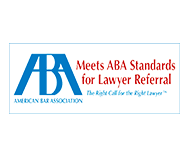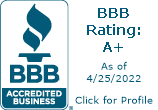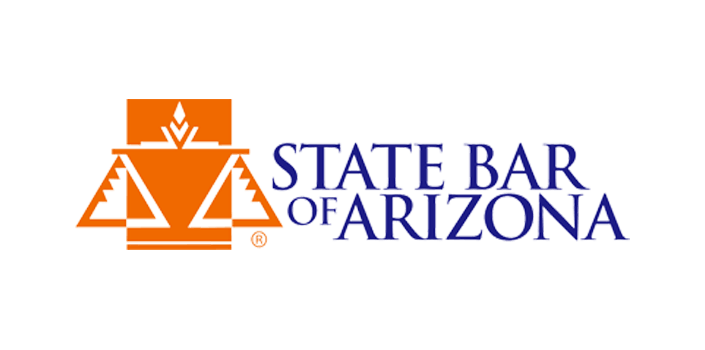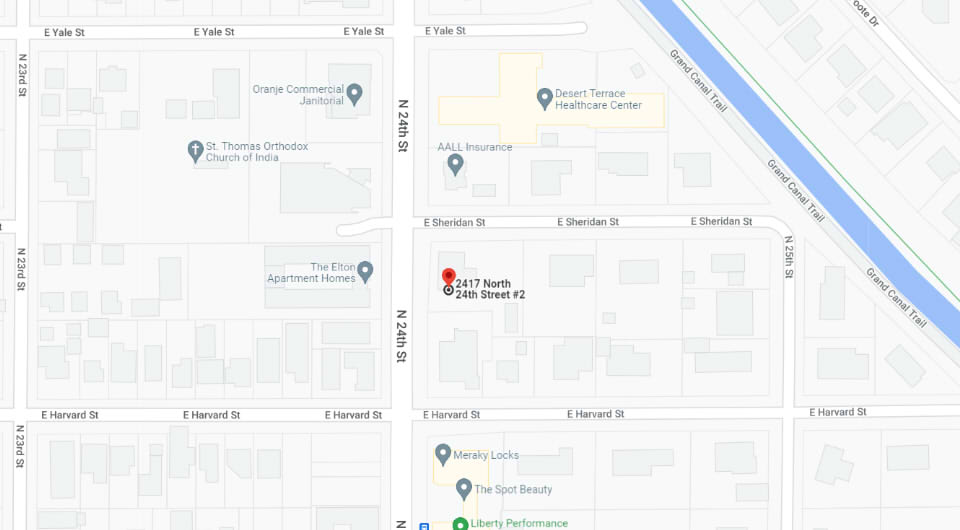Persistent Pulmonary Hypertension of the Newborn (PPHN) occurs when a baby's blood vessels fail to dilate sufficiently to deliver oxygen to its vital organs. The infant could experience major complications as a result of this and require urgent medical care. If the medical professional either missed the warning signs of PPHN or took too long to diagnose your child, there could be grounds for legal action to hold them accountable.
We at Phoenix Personal Injury Attorney Law Firm can assist you in holding your doctor, nurse, medical professional, or facility accountable for your child's injuries and recovering the compensation you are entitled to. Our team defends the rights of those who have been harmed in medical negligence cases. Give us a call today to speak to one of our representatives.
Understanding Persistent Pulmonary Hypertension of the Newborn (PPHN)
When a child is still in the mother's womb, the placenta supplies the child with oxygen through the umbilical cord. The amniotic fluid fills the developing fetus's lungs during this period. As soon as the baby is born, its lungs take over the role of supplying oxygen, which then has to be distributed throughout its body.
For their survival and continued good health, infants require a steady supply of oxygenated blood. This calls for a process known as the cardiopulmonary transition, wherein the blood arteries open and enables blood to flow through the lungs, and oxygen exchange takes place. The time comes when a newborn must switch from getting oxygen from the placenta to pumping on his or her own through their circulatory system.
If it doesn't, blood is redirected away from the lung tissue rather than flowing continuously toward them, resulting in insufficient oxygen levels. PPHN limits this flow and keeps blood from getting to the lungs of the child. If the lungs aren't sufficiently oxygenated, the blood won't have enough oxygen to transport to the rest of the body. The ultimate effect is a lack of oxygen for the baby's brain as well as the remainder of its body, which inhibits many of the vital processes needed for sustaining life.
When dealing with PPHN in newborns, healthcare providers must respond fast, that's why medical professionals must be properly trained to detect the signs immediately after they appear in the infant.
To minimize fluid within the lungs and help the newborn to breathe correctly, for instance, a baby with PPHN might have to undergo intubation, be put on a breathing machine, or be given certain drugs. If PPHN isn't treated, major issues could develop, leaving the infant with lifelong physical impairment or, in more severe cases, the death of the baby.
Causes of Persistent Pulmonary Hypertension of the Newborn (PPHN)
Newborns with PPHN could develop the condition as a result of pre-existing diseases, congenital defects, or maternal infections. It could also happen as a result of stressful labor. Several risk factors put newborns at a greater likelihood for PPHN, they include:
- Birth asphyxia or insufficient oxygen during or before birth
- Reduced blood sugar
- Reduced blood pressure
- Meconium aspiration—If a newborn has their first bowel movement while still in the mother's womb, it could be exposed to meconium, which can block its lungs
- Respiratory distress syndrome (RDS)
- Infection
- Having the umbilical cord tangled around the infant's neck while still in the mother's womb
Lung or congenital heart defects: PPHN is more common if the infant has a heart valve problem or another type of genetic lung or a heart defect.
In the first few days after delivery, all infants could be susceptible to PPHN, although certain newborns are more vulnerable than others. To take the necessary precautions to guarantee that the newborn receives enough oxygen, medical professionals should be equipped to recognize a newborn who's at a higher-than-average risk for Persistent Pulmonary Hypertension.
Symptoms of Persistent Pulmonary Hypertension in Newborns
Nurses, physicians, as well as other medical personnel involved with the delivery process of the newborn must be ready to recognize the clear indications of PPHN since it requires rapid treatment. The following are some of the possible symptoms:
A Rapid Heartbeat
A newborn who has high blood pressure could experience heart palpitations. One could tell this if the infant displays symptoms of unease or pain in their chest.
Rapid Breathing
As the baby struggles to breathe, their inhalations and exhalations could be more rapid than usual.
Drowsiness
Because of the abrupt loss of energy brought on by their fight to breathe, the infant may start to feel drowsy or fatigued.
Skin Color Changes to Purple or Blue
The infant's lips are most likely to become blue, whilst other parts of the infant's skin may appear purple or pale as a result of cyanosis.
Grunting or Total Silence
As they attempt to breathe out, the baby might moan or grunt. The infant could cease crying altogether and go entirely silent if they are unable to breathe.
Cold Extremities
The lack of oxygen throughout the body's tissues could cause the newborn to have cold feet and hands.
Swollen Extremities
Due to poor circulation, the baby's feet and hands could experience extreme swelling.
Lost Consciousness
The infant could lose consciousness as a result of inadequate oxygen supply.
Diagnosis and Treatment of Persistent Pulmonary Hypertension
Your newborn should undergo additional testing, including but not limited to the following if the healthcare provider at the medical facility where he or she was born suspects that your child has PPHN:
- X-rays
- Tests to measure the amounts of oxygen
- Blood tests
If your infant is found to have PPHN, treatment options include:
- Ventilator assistance, including any necessary medications
- Supplemental oxygen
- Extracorporeal membrane oxygenation (ECMO)
- Nitric oxide, which has the effect of widening lung blood vessels
PPHN in Infants Requires Immediate Treatment
Whenever a newborn is diagnosed with PPHN, medical professionals must move swiftly to increase the baby's blood oxygen levels to make sure that sufficient amounts of oxygen can reach the baby's lungs.
Doctors may need to use a Continuous Positive Airway Pressure (CPAP) machine, an oxygen mask, small tubes inserted inside the nose, or a specific ventilator that delivers oxygen in short bursts.
At some point, the infant may also require antibiotics to fight infection along with additional medications to control their blood pressure levels and temporarily reduce movement to lessen their need for oxygen.
Complications From Persistent Pulmonary Hypertension of the Newborn
When a baby is deprived of sufficient circulation to their lungs soon after delivery, inadequate oxygenation can lead to failure of the respiratory system. In addition to these symptoms, PPHN could also debilitate the infant's pulse, cause the liver to swell dangerously, lower the child's blood pressure, cause seizures, loss of hearing, speech impairments, heart failure, kidney failure, and irreversible brain injury.
How Negligence in Persistent Pulmonary Hypertension Cases Can Harm an Infant
Since the majority of instances of PPHN occur within a short period after the baby is born, healthcare providers need to be capable of diagnosing the medical condition and subsequently taking steps to address it. As a result, hospitals need to be furnished with the tools for diagnosis required for identifying and diagnosing PPHN, such as x-rays and ultrasounds.
Also, failing to act promptly or selecting the wrong kind of therapy for an infant with PPHN could result in irreversible harm. Often, cases of PPHN can be traced back to poor medical care given to the mother and newborn during the delivery process by the physician, the nurse, the personnel at the hospital, or any combination of these.
Medical malpractice can manifest itself in a variety of ways. The following are the most frequent causes of birth injuries, including PPHN:
- Wrong dosage or medication
- Delayed or wrong diagnosis
- Poor medical care during pregnancy and insufficient patient monitoring for mothers at risk
- Poor communication between the delivery and labor teams
- Improperly planned prenatal, labor, and postpartum care
If a physician, nurse, or another member of the medical team either fails to identify or address PPHN or raises the likelihood of PPHN due to carelessness during the delivery process, the parties involved could be held accountable in a medical negligence case.
Lawsuits and Injury Cases Relating to Persistent Pulmonary Hypertension of the Newborn (PPHN)
If your infant received a diagnosis of PPHN and needed treatment to address the condition, a lawyer in your jurisdiction can look into the case and decide whether medical malpractice and negligence were involved. They are also able to:
- Establish the responsible parties, which often include the hospital and/or the doctor
- Describe any deadlines that could be relevant
- Ask for copies of any relevant medical documents
- Build a compelling case to demonstrate negligence (show that your physician fell short of the required level of care)
- Discuss the appropriate standards of care with an expert in healthcare and how it differs from the level of care that your physician offered
Your child could be entitled to compensation for all necessary medical care for PPHN as well as any long-term problems from the disorder if your lawyer can make a compelling case against the medical professional or any responsible party. Additionally, you could be able to get compensation for your out-of-pocket costs, suffering and pain losses, and other things.
Determining Liability
A personal injury lawyer will look into the facts to establish responsibility. It is necessary to demonstrate how your physician deviated from or disregarded standard medical procedures to prove medical malpractice.
You can seek compensation from the individual or parties that contributed to or caused the circumstances that led to your minor's development of persistent pulmonary hypertension in the newborn (PPHN).
A personal injury lawyer is aware of the many elements needed to build a compelling case for medical malpractice. He or she needs to demonstrate the four elements listed below to be awarded damages:
- The responsible person owed you a duty of care
- The liable party failed to uphold its responsibility
- The negligent party's failure resulted in injuries to you or your minor
- You suffered damages as a result of your minor's condition
Duty of Care
To prove negligence, an attorney has to first prove that the defendant was required to act per the accepted norms of their profession. A duty of care is presumed if the individual in question is a physician so long as you maintain a current physician-patient relationship.
If the individual in question is a physician's assistant, a nurse, a nurse practitioner, or any other member of the physician's staff team, they owe you the duty of care through virtue of their employment with the attending doctor. The healthcare facility itself could be held liable because it is bound by an implied obligation of care to any individual admitted for treatment.
Not Upholding Duty of Care
A birth injury attorney for a baby with persistent pulmonary hypertension (PPHN) should also show that the negligent party failed to provide their call of duty. Your lawyer can demonstrate this by comparing the party's actions with what a sane person would do.
Injuries Sustained
A personal injury lawyer will need to demonstrate that the negligent party's breach of their duty caused the harm your newborn suffered. To support this claim, your attorney will cite a variety of sources, including the minor's medical records, the findings from lab tests, and the opinions of other healthcare professionals.
Damages Sustained
They should also detail the financial and non-financial losses you incurred as a result of your newborn's injuries. Settlement agreements are often used to resolve cases of medical malpractice. Most medical professionals and healthcare facilities would rather avoid the costs and attention of a court trial, especially if an infant is involved.
Who Can Be Held Accountable?
A competent personal injury lawyer can determine all accountable parties. While others can be held partially accountable, some are directly responsible.
These parties could comprise the following:
- Specialists
- Doctors
- Surgeons
- Hospital administration
- Registered nurses
- Anesthesiologists
- Midwives
Additionally, they can hold the following parties accountable:
- Birthing facilities
- Hospitals
- Urgent care centers
- Private practices
Holding negligent parties responsible for their misconduct is not inappropriate. You have the right to get justice and compensation for birth injuries that were avoidable.
The Potential Value of Medical Malpractice Cases
Many potential clients have questions about the potential value of their case for medical malpractice. Without investigating your baby's injuries and the factors surrounding them, you can't figure out how much it cost.
There are two categories of damages accessible in birth-related medical malpractice cases:
- Actual damages—these involve the costs of additional treatments, lost future earnings, and suffering and pain
- Punitive damages—these are given when a healthcare professional's negligence or malicious actions resulted in medical malpractice
Arizona ranks among the few jurisdictions in the US that do not impose damage caps on claims involving medical malpractice. However, a punitive-to-actual damage ratio greater than 9:1 is generally regarded as unconstitutional.
Children who suffer complications and lasting injuries as a result of medical malpractice, especially newborns with persistent pulmonary hypertension, are also entitled to compensation as victims of Phoenix medical malpractice and birth injuries.
An experienced lawyer can review the specifics of the case and determine what could have caused your newborn's health issues and injuries. You could be eligible to get compensation for your baby's injuries and any future treatments, subject to the specifics of the case.
Financial compensation can be very helpful in covering the expenses of your newborn's current and future treatment and medical care, even while it would not make a difference in addressing the physical agony endured by the baby and the pain felt by family and loved ones.
When it comes time to settle the case out of court or negotiate with the opposing party, having an experienced medical malpractice and birth injury attorney on your side can greatly strengthen your negotiating position. Finally, the peace of mind that results from entrusting your baby's case to a well-prepared legal team is priceless.
FAQs Regarding Persistent Pulmonary Hypertension in Newborns (PPHN)
The following are some of the frequently asked questions about PPHN.
How Can I Tell If My Child Has Persistent Newborn Pulmonary Hypertension (PPHN)?
PPHN babies often exhibit apparent symptoms within minutes or hours of birth. They have trouble breathing and need immediate medical assistance. They could have a blued-looking tint color to their skin.
Is Persistent Pulmonary Hypertension in Newborns (PPHN) Fatal?
PPHN can turn fatal. However, early treatment can significantly lower the chance of mortality.
Who Can Be Held Responsible For Persistent Pulmonary Hypertension in a Newborn (PPHN)?
If your physician or another medical professional fails to examine PPHN risk factors or delays PPHN diagnosis, you could be able to legally hold them responsible for your newborn's suffering and pain as well as any additional damages. Based on the circumstances of the case, your lawyer can assist you in identifying the responsible parties.
What Is the Statute of Limitations for PPHN?
In PPHN medical malpractice cases, the regulations in your jurisdiction will determine how long you can file a lawsuit. An Arizona medical malpractice case should be launched within two years of the injury's date (or when it is discovered), whichever comes first. A wrongful death claim can only be brought within two years after the deceased person's passing date.
Find A Arizona Birth Injury Attorney Near Me
If your child has PPHN, you could be entitled to compensation for your losses associated with the child's condition. We at the Phoenix Personal Injury Attorney Law Firm can review your case and assist you in determining whether there was medical malpractice in your case. Call us today at 602-641-9589.










